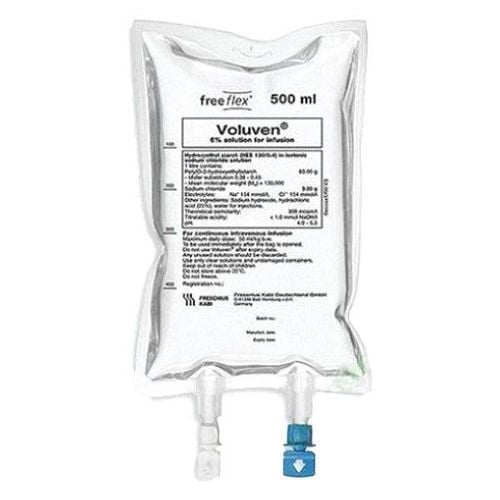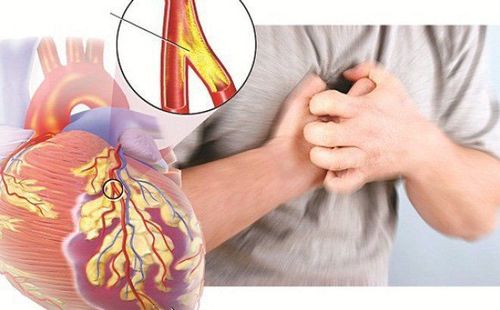This is an automatically translated article.
Dengue fever is an epidemic infectious disease caused by the Dengue virus, which, if not treated properly and promptly, can lead to dangerous complications or death. Currently, there are more and more reports of post-dengue myocarditis, which causes severe cardiovascular consequences for patients.
1. What is Dengue?
Dengue fever is an infectious disease caused by any of the four dengue virus serotypes DEN-1, DEN-2, DEN-3, and DEN-4, and the vectors that transmit the disease. mainly Aedes aegypti or Aedes albopictus.
Dengue fever is a disease that occurs all year round but usually occurs in the rainy season. This is a mosquito-borne viral disease that spreads from person to person, spreads quickly and is endemic in some countries with a high rate.
2. Dengue fever diagnosis
2.1. Febrile phase (Days 1-3) Clinical
Sudden and persistent high fever. Headache, nausea, loss of appetite. Congested skin. Muscle pain, joint pain, eye pain. The ligation test is usually positive. There may be bleeding gums, nosebleeds or petechiae under the skin. Laboratory
Blood count: Hematocrit (HCT) results are normal. Platelet count is normal or decreased (but still above 100,000/mm3). The white blood cell count usually decreases during the febrile phase. 2.2. Critical phase (Days 3 - 7) Clinical
Fever still or beginning to decrease. Abdominal pain is severe and continuous, increasing pain sensation in the right lower quadrant (liver). General state of fatigue, lethargy, struggle, lethargy. The liver is larger than 2 cm below the costal margin. Nausea, vomiting. Expression of plasma leakage: pleural effusion, interstitial tissue, peritoneal effusion, edema of 2 eyelids. May lead to shock, increased irritability, agitation, restlessness or lethargy, small tachycardia, low blood pressure, cold extremities, unmeasurable blood pressure, palpable pulse, purple veins, and low urine output. . Hemorrhagic manifestations: Subcutaneous hemorrhage: Scattered haemorrhagic spots in extremities, abdomen, flank... Mucous membrane bleeding such as nose bleeding, bleeding gums, vaginal bleeding, hematuria, vomiting bleeding, black or bloody stools. Major bleeding: Severe vaginal bleeding, gastrointestinal or visceral bleeding, accompanied by signs of shock. Subclinical
Complete blood count : Hematocrit (HCT) hemoconcentration increased by more than 20%. Platelet count may fall below 100,000/mm3. Blood biochemistry: liver enzymes AST, ALT increased. Coagulation dysfunction. X-ray or ultrasound can detect pleural, peritoneal effusion. 2.3. Recovery phase (7th day onwards) Clinical
Patient is fever free, hemodynamically stable. Eat and drink, want to eat. The general condition gradually improved. The purpura is reversible or may cause skin pruritus. Slow or irregular heartbeat. In some cases, there may be respiratory failure due to previous infusion. Subclinical
Blood count: Hematocrit (HCT) returned to normal. Platelet count returned to normal. The white blood cell count is usually increased. Blood biochemistry: Liver enzymes AST, ALT begin to decrease gradually.
3. Complications of Dengue fever
Complications of dengue can include:
Hemorrhagic shock or prolonged plasma leakage, which can lead to cerebral edema or coma. Inflammation of the respiratory tract or pneumonia, pulmonary edema due to plasma leakage. Brain hemorrhage . Severe liver damage, acute kidney injury. Myocarditis, heart failure or multi-organ failure. Sudden blindness due to bleeding in the retina. Dengue fever in pregnant women can cause miscarriage or threaten premature birth.
4. Beware of myocarditis caused by dengue fever
Viral infection is the most common cause of acute myocarditis. Many viruses can affect the heart muscle, but the most common virus that affects the heart muscle in adults is Adenovirus. Cardiac complications in dengue, previously thought to be very rare, are becoming increasingly common in clinical practice. Myocarditis is the most common cardiovascular complication of dengue.
4.1. Epidemiology Cardiac complications of dengue include pericardial effusion, myocarditis, atrioventricular block, extrasystoles, and atrial fibrillation. The rate of myocarditis in hospitalized dengue patients was 11.28%. This rate was higher in patients with dengue with warning signs and in severe dengue (46.6%), compared with patients with dengue without warning signs (9.72%).
4.2. Pathogenesis The mechanism of myocardial damage in dengue may be the release of inflammatory mediators and/or the direct action of dengue virus on cardiomyocytes, as seen in Fig. acute myocarditis caused by other viruses.
4.3. Clinical symptoms Symptoms of myocarditis may overlap with that of dengue fever:
High fever 39 - 41 degrees Celsius. Musculoskeletal pain, body fatigue. Dizziness, fainting. Chest pain. Fast or irregular heartbeat (arrhythmia). Auscultation: Blurry heart sound, first in T1 and then in T2. There may be gallop, systolic murmur at the apex. Swollen feet, ankles and feet. 4.4. Subclinical Electrocardiogram: Atrioventricular conduction disturbances: Atrioventricular block I, II, III, intraventricular conduction disorder or His bundle branch block. Arrhythmia: The heart rate is usually fast, sometimes slow. Extrasystoles, atrial fibrillation and other arrhythmias. Flat T wave, ST segment elevation or depression, low amplitude QRS. Echocardiography: Movement of the heart wall is reduced. Cardiac chambers dilate, reducing left ventricular systolic and diastolic function. Functional regurgitation of heart valves due to dilated heart chambers. There may be a blood clot in the heart wall. Pericardial effusion. Chest X-ray: Enlarged heart shadow. Stagnation of pulmonary circulation. Blood tests: white blood cells increased. Elevated erythrocyte sedimentation rate. Dengue IgG, IgM, NS1 test was positive. 4.4. Complications Usually, myocarditis resolves on its own or resolves once the dengue fever is under control and there are no permanent complications. However, severe dengue with severe myocarditis can cause permanent damage to the heart muscle.
Potential complications of myocarditis can include:
Heart failure: Complications of hemorrhagic fever myocarditis can damage the heart muscle, making it unable to pump blood well. In some patients with severe conditions, myocarditis-related heart failure may require a ventricular assist device or a heart implant. Heart attack or stroke: The heart muscle damaged by the dengue virus cannot pump blood well, so blood accumulates in the heart increasing the risk of blood clots forming. A heart attack can occur if a blood clot blocks one of the coronary arteries. At the same time, a stroke can occur if a blood clot travels to and blocks a brain artery. Tachycardia, arrhythmia: Dengue virus causes inflammation of the heart muscle that changes the rhythm of the heart. Cardiac arrhythmias can increase the risk of stroke. Sudden cardiac death: Some arrhythmias from serious complications of myocarditis can cause the heart to stop beating suddenly. This complication can be fatal if not treated promptly. Dengue fever is an infectious disease with dangerous symptoms and complications, including myocarditis. Early diagnosis as well as effective treatment of dengue fever will contribute to limiting the serious consequences in general and myocarditis complications in particular.
Please dial HOTLINE for more information or register for an appointment HERE. Download MyVinmec app to make appointments faster and to manage your bookings easily.













